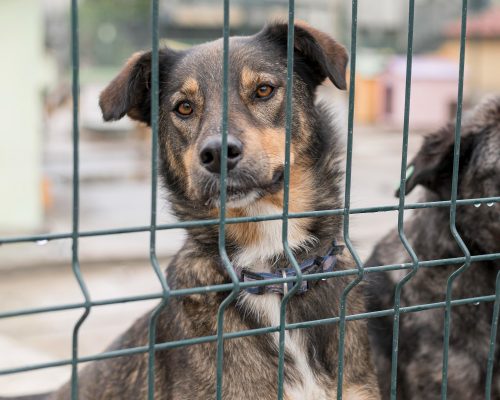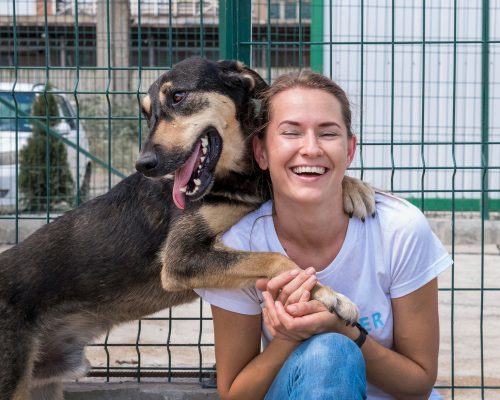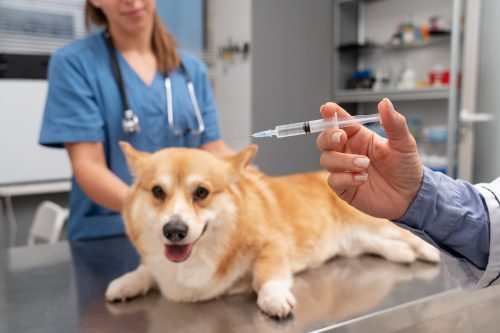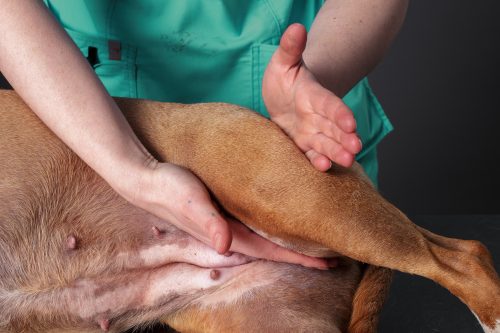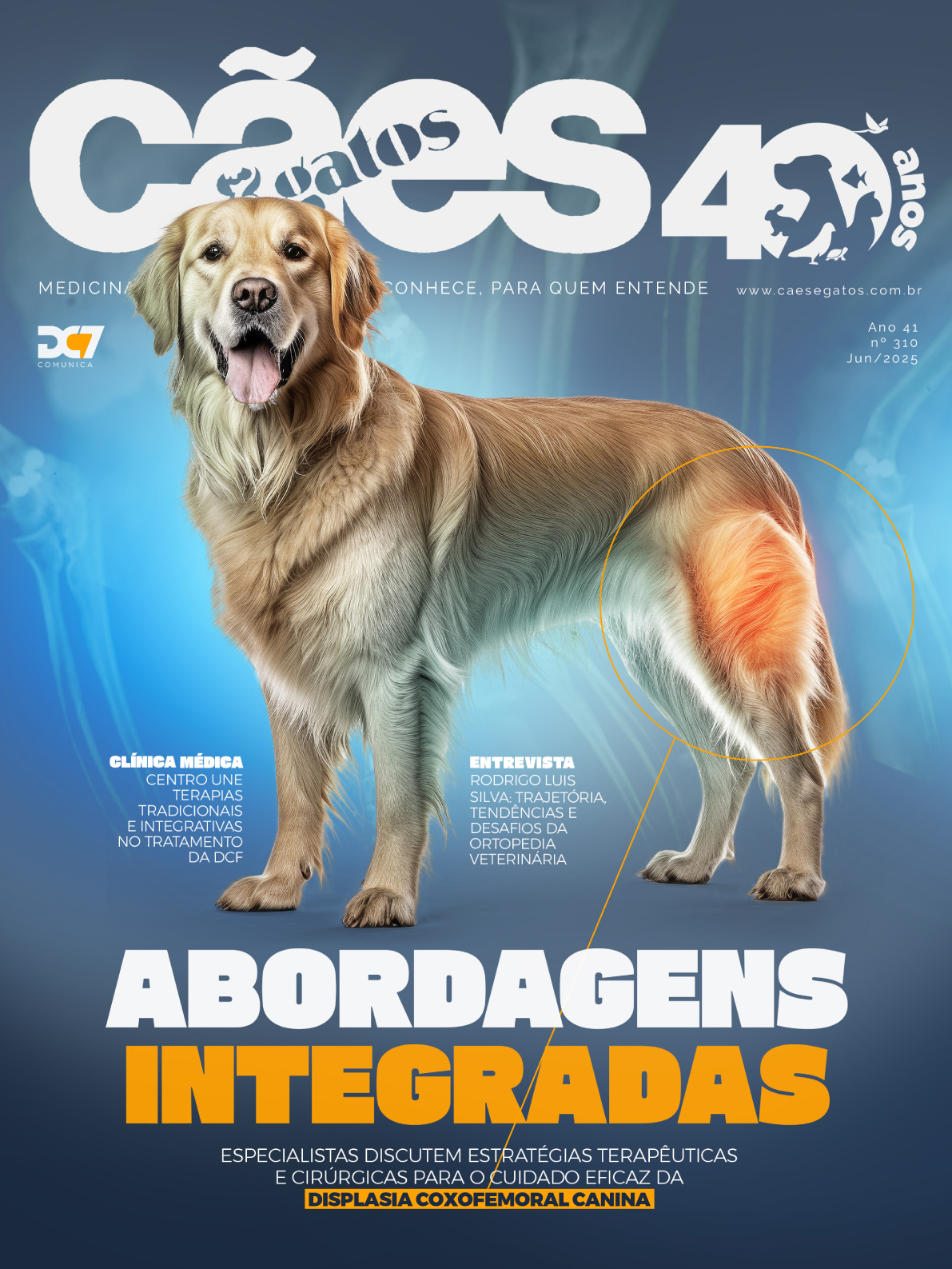A enteropatia crônica, também conhecida como doença inflamatória intestinal (DII), é caracterizada pela apresentação de sinais gastrointestinais, como vômito, diarreia, borborigmos, hiporexia e perda de peso que se prolongam por, no mínimo, duas semanas. Apesar da causa exata ainda ser pouco elucidada, acredita- se que ocorra em animais já predisponentes geneticamente após a interação entre fatores alimentares, ambientais e imunológicos.
A classificação da enteropatia crônica se baseia na resposta ao tratamento, podendo ser: enteropatia responsiva ao antibiótico, ao alimento ou ao imunossupressor. Embora tenham distintas etiologias, diferenciá-las a partir dos sinais clínicos pode ser um desafio na rotina clínica.
Existem duas formas de manejo dietético atualmente indicadas: dieta hidrolisada e Fonte de proteína inédita ao paciente e carboidrato altamente digestível – por exemplo, salmão ou peixe branco e arroz -, por, pelo menos, duas semanas.
Acesse aqui e leia o artigo completo na edição de janeiro da C&G VF. Abaixo, as referências bibliográficas utilizadas pelos autores.
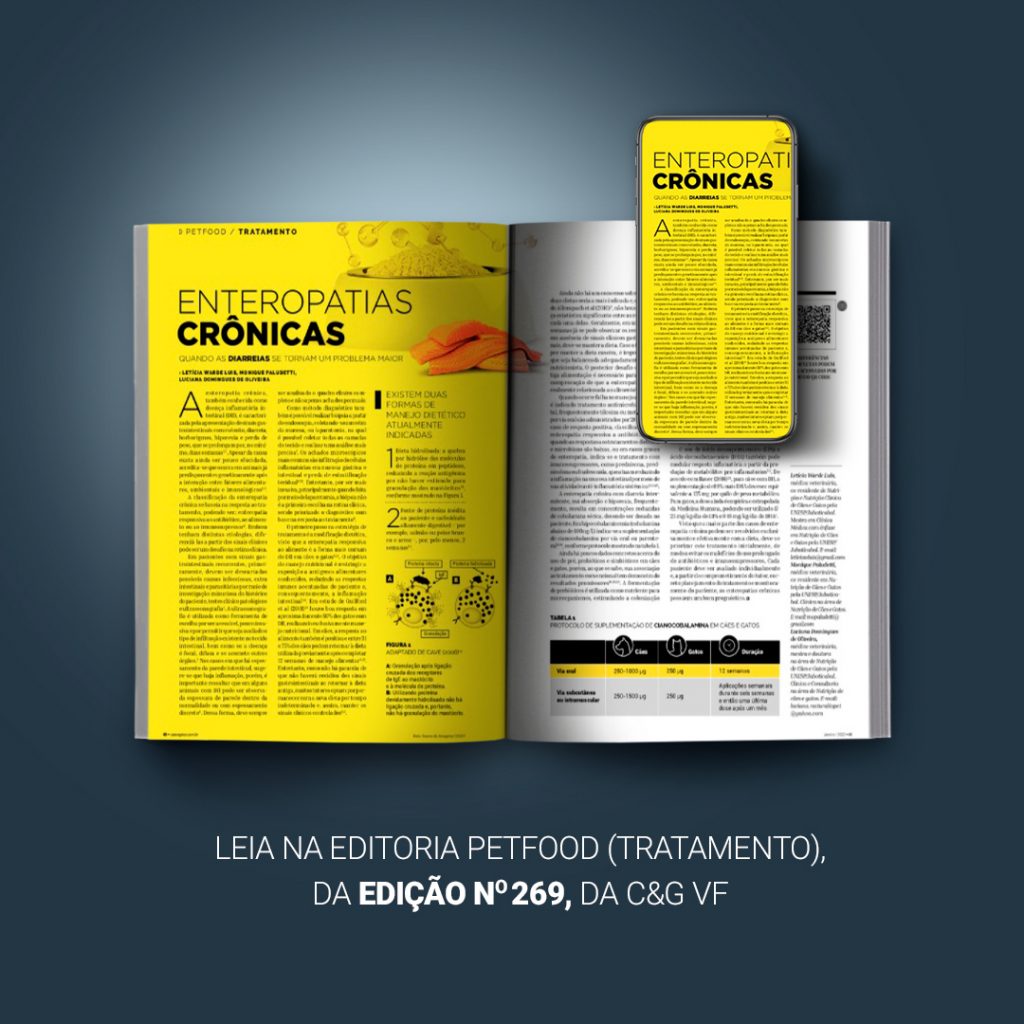
Referências
1. RUDINSKY, A. J.; ROWE, J. C.; PARKER, V. J. Nutritional management of chronic enteropathies in dogs and cats. Journal of the American Veterinary Medical Association, v. 253, n. 5, p. 570-578, 2018.
2. DANDRIEUX, J. R. S. Inflammatory bowel disease versus chronic enteropathy in dogs: are they one and the same? Journal of Small Animal Practice, v. 57, n. 11, p. 589–599, 2016.
3. GERMAN, A. J.; HALL, E. J.; DAY, M. J. Chronic intestinal inflammation and intestinal disease in dogs. Journal of veterinary internal medicine, v. 17, n. 1, p. 8-20, 2003.
4. JERGENS, A. E. Feline idiopathic inflammatory bowel disease: what we know and what remains to be unraveled. Journal of feline medicine and surgery, v. 14, n. 7, p. 445-458, 2012.
5. OMORI, M. et al. Fecal microbiome in dogs with inflammatory bowel disease and intestinal lymphoma. Journal of Veterinary Medical Science, p. 17-0045, 2017.
6. BHAVANI, M. S. et al. Abdominal ultrasonography in canine inflammatory bowel disease: A short study. 2021.
7. YOGESHPRIYA, S. et al. Technical review on inflammatory bowel disease in dogs and cats. Int. J. Sci. Environ, v. 6, p. 1833-1842, 2017.
8. SABATTINI, S. et al. Differentiating feline inflammatory bowel disease from alimentary lymphoma in duodenal endoscopic biopsies. Journal of Small Animal Practice, v. 57, n. 8, p. 396-401, 2016.
9. SIMPSON, K. W.; JERGENS A. E. Pitfalls and progress in the diagnosis and management of canine inflammatory bowel disease. Vet Clin Small Anim, v. 41, p. 381–398, 2011.
10. GUILFORD, W. G. et al. Food sensitivity in cats with chronic idiopathic gastrointestinal problems. Journal of Veterinary Internal Medicine, v. 15, p. 7–13, 2001.
11. ALLENSPACH , K.; CULVERWELL , C.; CHAN , D. Long-term outcome in dogs with chronic enteropathies: 203 cases. Veterinary Record, 2016.
12. MANDIGERS, P. J. et al. A randomized, open-label, positively-controlled field trial of a hydrolyzed protein diet in dogs with chronic small bowel enteropathy . Journal of Veterinary Internal Medicine, v. 24, p. 1350 – 1357, 2010.
13. CAVE, N. J. Hydrolyzed protein diets for dogs and cats. Vet Clin of North America Small Animal Practice, 2006.
14. BHAVANI, M. S.et al. Comparison of Oral Prednisolone, Budesonide and Probiotics in the Treatment of canine Inflammatory Bowel Disease. Indian Journal of Animal Research, v. 1, p. 8.
15. ATHERLY, T. et al. Glucocorticoid and dietary effects on mucosal microbiota in canine inflammatory bowel disease. PloS one, v. 14, n. 12, p. e0226780, 2019.
16. Cobalamin information. Texas A&M University. Disponível em: https://vetmed.tamu.edu/gilab/research/cobalamin-information/. Acesso em: 03 de dezembro de 2021.
17. RUAUX, C. G.; STEINER, J. M.; WILLIAMS, D. A. Early Biochemical and Clinical Responses to Cobalamin Supplementation in Cats with Signs of Gastrointestinal Disease and Severe Hypocobalaminemia. Journal of Veterinary Internal Medicine, v. 19, p. 155– 16, 2005.
18. WHITE R.; ATHERLY T.; GUARD B. et al. Randomized, controlled trial evaluating the effect of multi-strain probiotic on the mucosal microbiota in canine idiopathic inflammatory bowel disease. Gut Microbes, v. 3. n. 8, p. 451–466, 2017. doi:10.1080/19490976.2017.1334754
19. SEGARRA, S. et al. Oral chondroitin sulfate and prebiotics for the treatment of canine Inflammatory Bowel Disease: a randomized, controlled clinical trial. BMC veterinary research, v. 12, n. 1, p. 1-9, 2016.
20. ROSSI G.; PENGO G.; CALDIN M. et al. Comparison of microbiological, histological, and immunomodulatory parameters in response to treatment with either combination therapy with prednisone and metronidazole or probiotic VSL#3 strains in dogs with idiopathic inflammatory bowel disease. PLoS One, v. 9, 2014. doi:10.1371/journal.pone.0094699
21. ZIESE, A. et al. Effect of probiotic treatment on the clinical course, intestinal microbiome, and toxigenic Clostridium perfringens in dogs with acute hemorrhagic diarrhea. PLoS One, v. 13, n. 9, 2018.
22. PILLA, R. et al. Administration of a synbiotic containing Enterococcus faecium does not significantly alter fecal microbiota richness or diversity in dogs with and without food-responsive chronic enteropathy. Frontiers in veterinary science, v. 6, p. 277, 2019.
23. BAUER, J. E. The essential nature of dietary omega-3 fatty acids in dogs. Journal of the American Veterinary Medical Association, v. 249, n. 11, p. 1267-1272, 2016.




